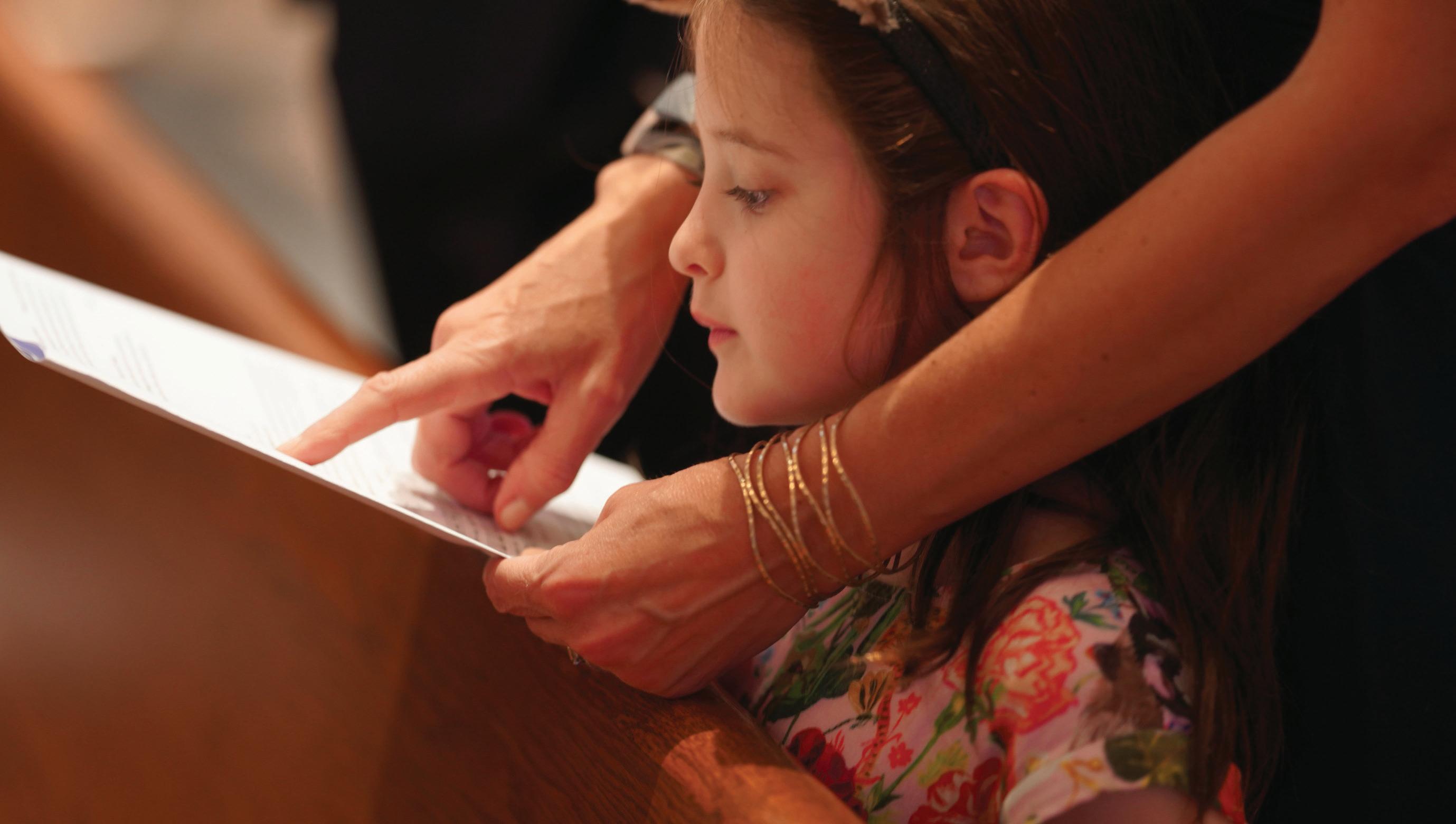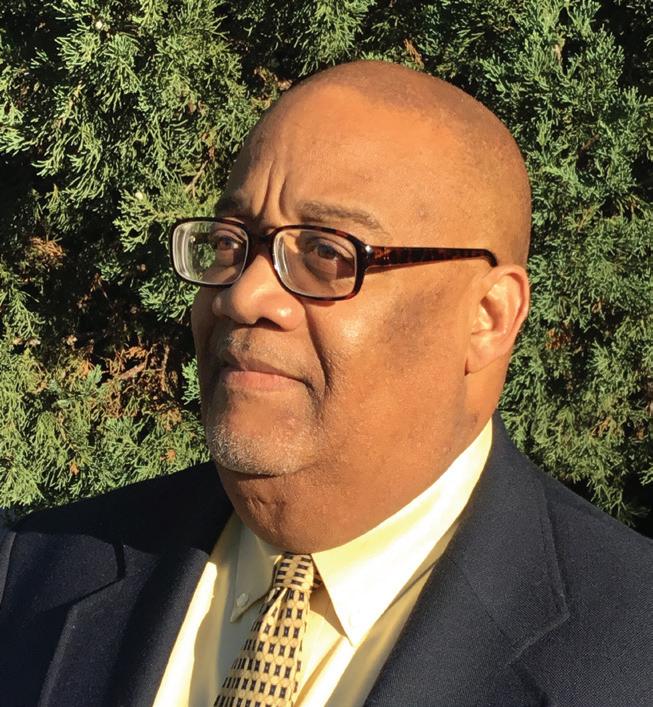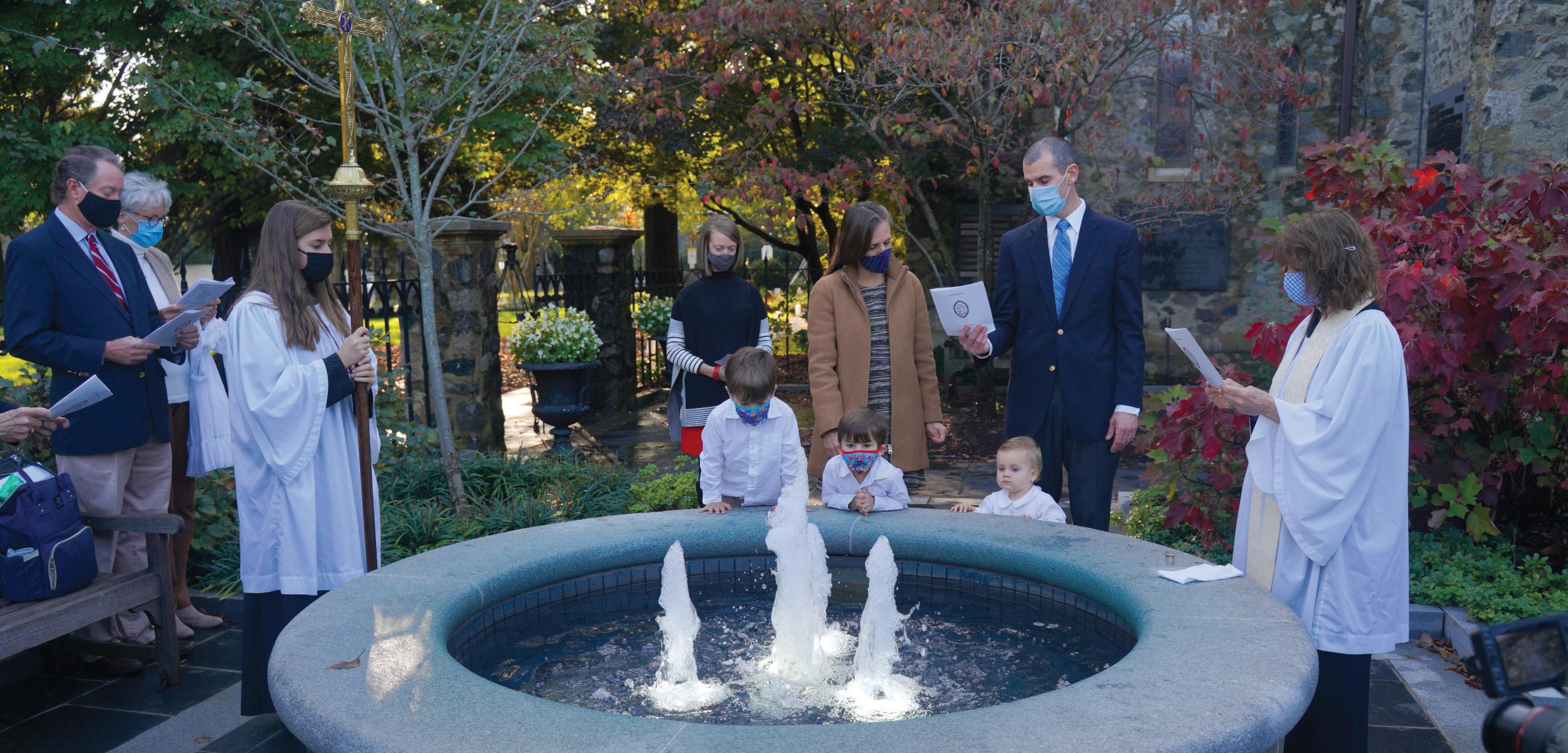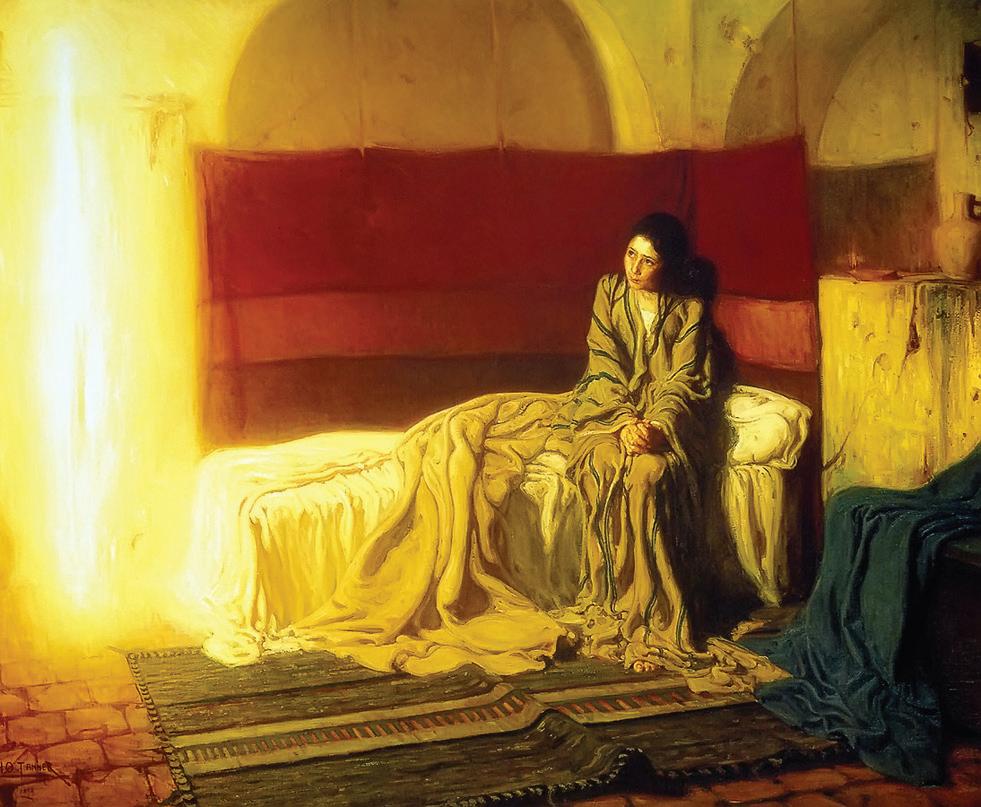
7 minute read
Reflections on Mary
I know it is
Being and becoming Mary
Editor’s note: each Monday during the three “covenant That moment in the Christian story when the angel periods” for Emmaus Groups at St. Stephen’s Church (fall, Gabriel visits Mary to tell her she will conceive and winter, and spring), Allison Seay provides reflections on mother the Son of God is one of the most profound a poem, sent to subscribers via email, under the banner of all. Annunciation means announcement and this “Wellspring: Poetry for the Journey.” These free poetry is what it is: there’s going to be a baby, and it’s going guides written by Allison, our associate for religion and to change everything. the arts, are available to all. They’re also published on our Web site at ststephensRVA.org/wellspring. This reflection has particular resonance for Advent, and we are publishing it By Allison Seay Advent’s story about Mary’s pregnancy parallels a more metaphoric pregnancy in which all of us are invited to in Seasons of the Spirit to give you a taste of what Wellspring offers imagine that we too carry within us the promise of God. We are each week. To sign up for these emails, just go to the Wellspring page invited to think about what has been given to us to bear, what of our Web site. we are bringing to life, what it means that everything is changing. We are invited, impossibly, to imagine what we cannot imagine.
Annunciation Mary’s baby is our own hope, is our own great thing still to come.
Even if I don’t see it again—nor ever feel it I know it is—and that if once it hailed me I believe that the power of that moment for her is one we share and share absolutely, for not only is God coming to us incarnate, as God comes to Mary, but we are co-hearers with her, year after it ever does— year, of Gabriel’s announcement: something is happening which
And so it is myself I want to turn in that direction we cannot yet see. It happened once, is happening again, is not as towards a place, but it was a tilting happening forever. within myself, as one turns a mirror to flash the light to where it isn’t—I was blinded like that—and swam Of course, one does not need to be Mary to know about a lifechanging experience. One need not be a mother, nor a woman, to know about birth. And one certainly need not have seen in what shone at me Gabriel to have been “blinded like that” by divine presence. only able to endure it by being no one and so specifically myself I thought I’d die What I love about Marie Howe’s poem, written in the voice from being loved like that. of the Holy Mother, is the way it invites us to consider Mary’s interior, hushed, perhaps universal response to the news. Because
Marie Howe she alone is the one to have the experience of Gabriel—she who is “no one” (that is, otherwise ordinary) and she who is exceptional (“so specifically myself”)—it is she who must witness for all, though language must surely have failed to fully express what had happened. Who among us has had a flash of knowing that way, a fleeting certainty of the reality of God, a dream, a momentary sensation that assured us Yes! it’s all true. And who among us, though it may never happen again, and though we cannot fully explain it, does indeed “know it is”?
The collection in which this poem appears is Howe’s The Kingdom of Ordinary Time, from a section within it titled “Poems from the Life of Mary.” All are written in the voice of the Virgin and from the “I,” balancing reverence and homage with imagination and intimacy. The poet invites us to (re) consider Mary while conceptualizing our own Mary-ness, our own identities as mothers of God. We more than resemble one another—Mary is me, is you, is all of us—and if we are being and becoming Mary, then so we are each also holding within us Christ’s very being.
It is true always, and certainly now: everything is changing. I prefer to think that everything is becoming, turning “not as toward a place” but instead “tilting within.” The poem has me wondering if perhaps it is not this simple: my true identity is not changing, but my understanding of myself is changing. I, beloved as Mary, am learning to see Mary in the mirror, am learning to see Mary in my neighbor, am learning to see Mary everywhere I look so long as I turn in the direction of love. If am “being loved like that,” then so are you. And you, and you, and you.
While I am sure that we have all— particularly in this past year—had a moment of stunned bewilderment or been sent reeling by life-changing news and with it a recognition that the world is forever changed, I do not presume to think all have had blinding, ecstatic moments of the certainty of God. In fact, I know many have not.
Therefore, such hope!
What promise there is, what hope, that the holy moment is coming soon. What hope that your Mary-ness will be made certain to you. I pray you keep awake for it, for the light that shines for you, for the voice that hails you, for the angel sure to appear though you know not when. ✤
ABOUT THE POET
Marie Howe currently serves on the writing faculties at Sarah Lawrence College, New York University, and Columbia University. She is the author of several collections of poetry and co-editor of the essay anthology In the Company of My Solitude: American Writing from the AIDS Pandemic. She has received fellowships from the National Endowment for the Arts, the Guggenheim Foundation, and the Academy of American Poets and she served as Poet Laureate of New York State from 2012 to 2014.
The Song of Mary
The church has portrayed the mother of Jesus as meek and mild, but the Magnificat tells a fuller story
Ididn’t grow up praying to Mary, the mother of Jesus. In my home church, such things were looked on with bewilderment and (if I am honest) a bit of disdain for being “too Catholic.” It wasn’t until I found myself in college in Montreal, a city with deep Roman Catholic historicity, that the figure of the Virgin Mary, as she is often called, became more familiar and complex in my mind.
For many years, the church has portrayed Mary as submissive, and By Cate Anthony has presented this meek version of her as the paradigm for female life in this world. In the Gospel story about Mary’s conversation with the archangel Gabriel, we hear of Mary’s “yes” to God’s intention to make her the theotokos or “God-bearer.” From this, the church has intimated (not subtly) that women ought to follow Mary’s example, turning their whole lives over to God’s community on Earth—the church.
This reading of Mary misses the mark—most importantly because it twists the fierce and passionate occupation of motherhood into something sentimental and docile. More than that, it risks interpreting that docility as a sign that those who are perceived to be “weak” owe obedience to more powerful humans. This, my friends, is simply not what Mary was about when she said “yes” to the Lord.
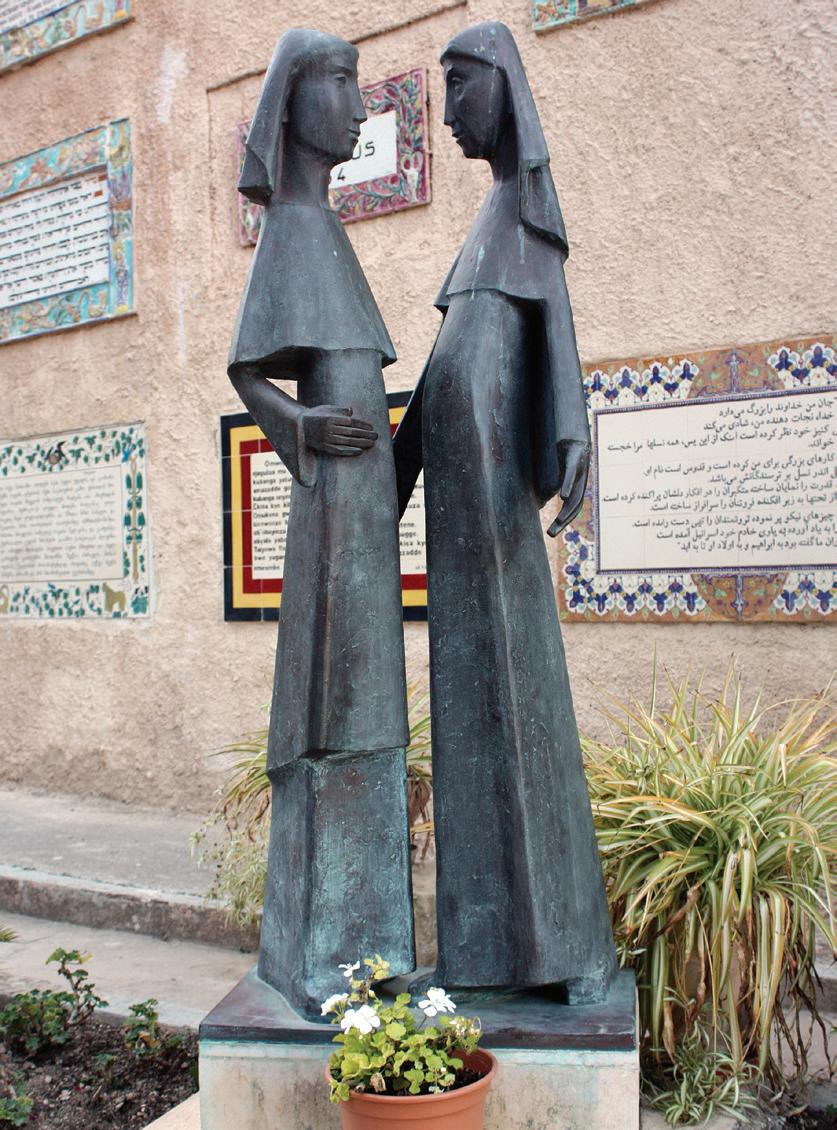
Rather, Mary’s “yes” was revolutionary for the ways that it reinterprets obedience as a truly radical act. In our modern context, obedience remains countercultural. We prioritize the Self above much else: self-improvement, self-esteem, self-care. To be clear, this focus on the self is a good and worthwhile endeavor—so long as it does not overshadow to whom we truly belong as people of the Christian Sculpture of Mary and Elizabeth at Church faith. Mary’s “yes” reminds us that obedience to God of the Visitation in Ein Kerem, Jerusalem is actually a blessing, a proclamation of the greatness of God and all that God does and might do with us.
Of course, there is a shadow side to this kind of holy self-offering. Mary’s own story illustrates that the blessings we receive from God in this life are not always purely joyful or easy. In saying “yes” to God, Mary says yes to deep heartache (as she will one day see her beloved son on the hard wood of the cross). But, as she sings in the Magnificat, her beautiful proclamation of joy at God’s invitation to bear Jesus, the ultimate end of the story into which God invites Mary is a radical re-righting of the human world. The mighty shall be struck down as the lowly are lifted up, generations granted mercy and the hungry filled, the Chosen of God saved and brought forward into the full light of God’s love.
This Advent, Mary’s song of praise is an invitation to us, to renew our own fidelity and posture of obedience toward God. This practice might chafe a bit, when following Christ leads us into unexpected or uncomfortable lands. And yet: we can trust that even in unknown lands, God is doing great things for us, the Holy making us holy, too. ✤






